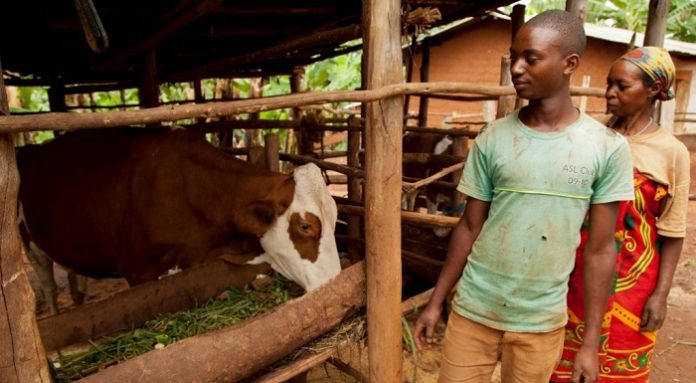The potential powerhouse of energy and creativity of the world’s 1.2 billion young people was highlighted by Gilbert F. Houngbo, President of IFAD during the annual spring meetings of the World Bank Group (Bank) and the International Monetary Fund (IMF) that are currently underway.
The event brings together central bankers, ministers of finance and development sector executives, among others, to discuss issues of global concern, including the world economic outlook, poverty eradication, economic development, and aid effectiveness.
“A youthful population can offer a nation a creative, energetic and entrepreneurial workforce,” said Houngbo in a statement delivered to the three-day event in Washington DC. “However, when young people are not able to find jobs and earn decent wages where they live, they are also more likely to migrate to urban centres or abroad in pursuit of work and better standards of living than their parents.”
In rural areas, home to a total of 600 million youth, young people are particularly disadvantaged, the statement continued. For example in access to finance and land, and young rural women are often at the greatest disadvantage in this regard, as well as being most penalized by poor infrastructure – leading to a heavy burden of tasks like fetching fuel and water.
Unpaid care responsibilities and such context-specific social practices as early marriage create further barriers to their advancement. In addition to increased access to resources and services, young rural women and men also need to be able to develop the skills that enable them to take advantage of livelihood opportunities.
In particular, Houngbo’s statement highlighted the important role of a strong agricultural sector in providing a solid foundation for economic growth and rural youth employment.
“Clearly there is an urgent need for investments that build dynamic rural economies,” said Houngbo in his statement. “Such economies will provide decent job and entrepreneurial opportunities to rural youth, both in the agriculture sector and beyond, including in the food systems that link rural and urban areas.”
In a global survey conducted in 2014, more than 70 per cent of young farmers said that access to finance was their main barrier. In Nigeria, the IFAD-supported Community-Based Natural Resource Management Programme provides seed capital to young people from very poor families. They also receive training in business management and credit handling, and prepare a business plan that responds to local demand.
This is then submitted to the local community development committee for financing. The programme addresses not only the need for money but the support, skills and financial literacy which are also critical to developing successful businesses.
“To achieve balanced and inclusive economic growth and truly ‘leave no one behind,’ it is essential that governments, development institutions and the private sector recognize the potential for young rural women and men to lift themselves and their communities out of poverty,” Houngbo’s statement said, reiterating that their future “depends on the availability of decent work, and equality of opportunity, which we all must play a part in providing.”


